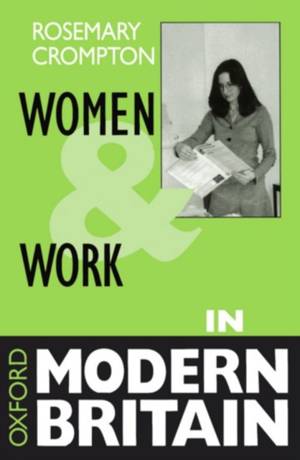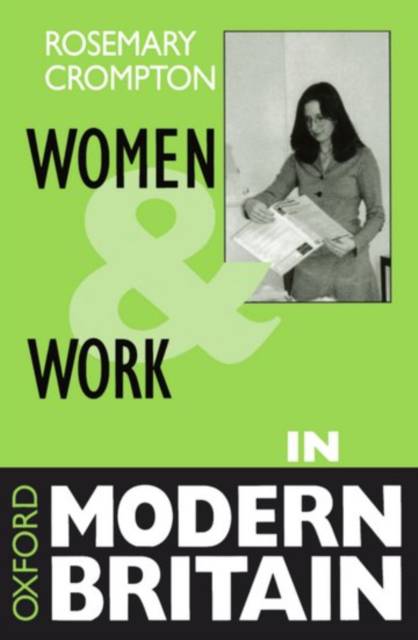
- Afhalen na 1 uur in een winkel met voorraad
- Gratis thuislevering in België vanaf € 30
- Ruim aanbod met 7 miljoen producten
- Afhalen na 1 uur in een winkel met voorraad
- Gratis thuislevering in België vanaf € 30
- Ruim aanbod met 7 miljoen producten
Zoeken
€ 77,45
+ 154 punten
Omschrijving
Rosemary Crompton gives a full account of the recent changes in the structure of women's employment, incorporating a comprehensive review of the relevant theoretical concepts and the arguments developed to explain them. Discussing the pattern of women's paid employment from the standpoint of both constraint and individual choice, she begins by examining the variety of explanations offered to understand the situation of women at work in twentieth-century Britain. Subsequent chapters focus on the nature and extent of female employment in Britain today; cross-national comparisons of the differential structuring of women's employment; women as employees; and the changes in the lives of women and men as caused by the fluctuating employment/family interface. The implications of these changes for Britain's wider structures of inequality and social polarization are also studied.
Specificaties
Betrokkenen
- Auteur(s):
- Uitgeverij:
Inhoud
- Aantal bladzijden:
- 168
- Taal:
- Engels
- Reeks:
Eigenschappen
- Productcode (EAN):
- 9780198780977
- Verschijningsdatum:
- 5/02/1998
- Uitvoering:
- Paperback
- Formaat:
- Trade paperback (VS)
- Afmetingen:
- 135 mm x 201 mm
- Gewicht:
- 226 g

Alleen bij Standaard Boekhandel
+ 154 punten op je klantenkaart van Standaard Boekhandel
Beoordelingen
We publiceren alleen reviews die voldoen aan de voorwaarden voor reviews. Bekijk onze voorwaarden voor reviews.











